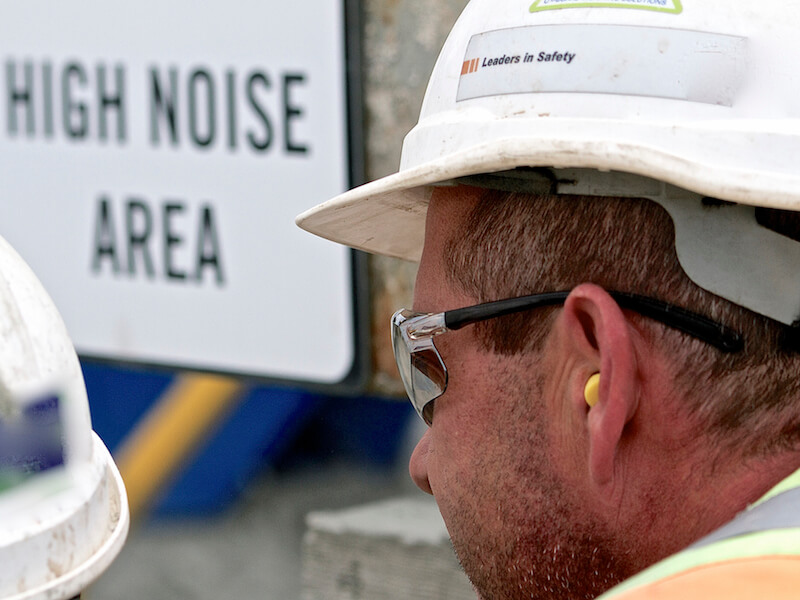
A loud workplace isn’t very good for your ears (or your concentration, for that matter). Your hearing health can be negatively impacted by even moderate levels of noise if you’re exposed to it for numerous hours each day. This is why questions like “what hearing protection should I use?” are worth asking.
It isn’t common knowledge that several levels of hearing protection are available. But it makes sense when you stop to consider it. A jet engine mechanic is going to need a different level of protection than a truck driver.
Hearing Damage Levels
The fact that 85dB of sound can start to harm your ears is a basic rule of thumb. We’re not really used to considering sound in terms of decibels (even though that’s how we measure sound – it just isn’t a figure we’re used to putting into context).
Eighty-five decibels is approximately how loud city traffic is when you’re driving your car. That isn’t a big deal, right? Wrong, it’s a big deal. It becomes a big deal after numerous hours. Because the duration and frequency of exposure are very significant when it comes to damaging noise exposure.
Typical Danger Zones
If you’re exposed to 85 dB of noise for eight hours every day or more, you need to consider using hearing protection. But there are a few other important thresholds to take note of. If you’re exposed to:
- 90 dB (e.g., lawnmower): injury will start to happen to your ears if you’re exposed to this level of noise for 4 hours a day.
- 100 dB (e.g., power tools): Anything above one hour will be damaging to your ears.
- 110 dB (e.g., leaf blower): Anything above fifteen minutes is considered damaging to your hearing.
- 120 dB (e.g., rock concert): Any exposure can cause harm to your hearing.
- 140 dB (e.g., jet engine): Any exposure can lead to damage and may even cause immediate pain.
When you are going to be exposed to these levels of sound, use hearing protection that will bring the decibels in your ears down below 85 dB.
Find a Comfortable Fit
NRR, which is an acronym for Noise Reduction Rate, is a scale used to determine the effectiveness of hearing protection. The outside world will be progressively quieter the higher the NRR.
It’s incredibly important that you pick hearing protection with a high enough NRR to keep you safe (and your workplace will typically make suggestions about what level might be appropriate).
Comfort is also an important factor to take into consideration. As it happens, comfort is incredibly significant to keeping your hearing healthy. This is because you’re not as likely to actually wear your hearing protection if it’s uncomfortable.
What Are my Hearing Protection Choices?
There Are Basically Three Options:
- Earplugs that sit just outside of the ear canal.
- Earplugs that sit within the ear canal
- Earmuffs.
Each form of protection has advantages and disadvantages, but personal preference is frequently the deciding factor. Earmuffs are a better option for individuals whose ears are irritated by earplugs. For other people, the ability to put earplugs in and leave them in is a better alternative (of course, at the end of the workday you should take them out for a good cleaning).
Consistently Use Protection That Works Best For You
Any laps in your hearing protection can result in damage, so comfort is a significant factor. If earmuffs are scratchy and uncomfortable you’re more likely to take them off for short periods and that can have a negative effect on your hearing over time. This is why hearing protection that you can leave in for the full workday is the best choice.
Investing in the degree of hearing protection you require can help keep your ears healthy and happy.
Call Today to Set Up an Appointment
References
https://www.cdc.gov/nceh/hearing_loss/what_noises_cause_hearing_loss.html
